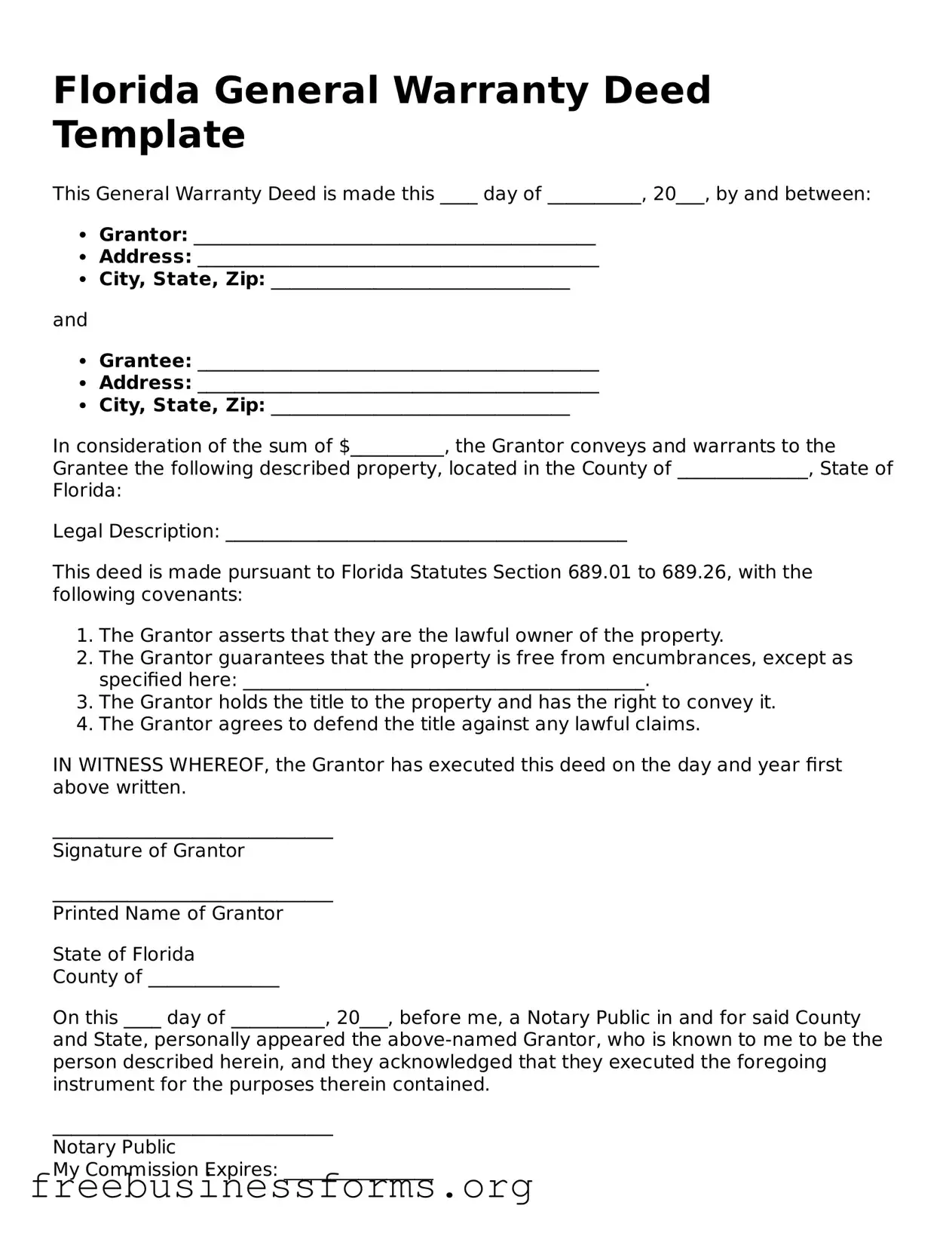Blank Deed Template for Florida
A Florida Deed form is a legal document used to transfer ownership of real estate in the state of Florida. This form outlines the details of the property being transferred and the parties involved in the transaction. Understanding the nuances of this form is essential for ensuring a smooth transfer and protecting your rights as a property owner.
Open Form Here

Blank Deed Template for Florida
Open Form Here

Open Form Here
or
↓ PDF File
Quickly complete this form online
Complete your Deed online quickly — edit, save, download.